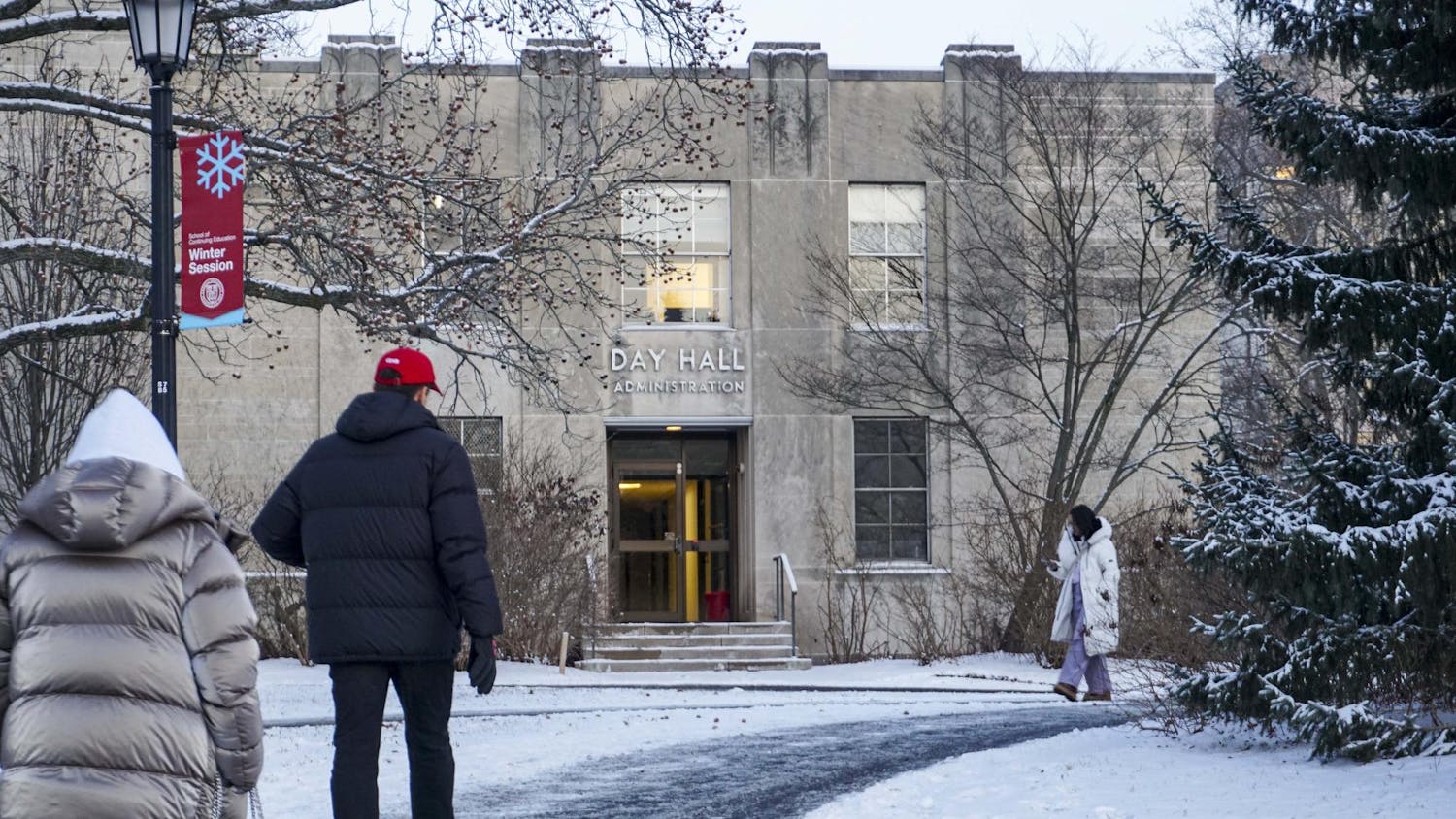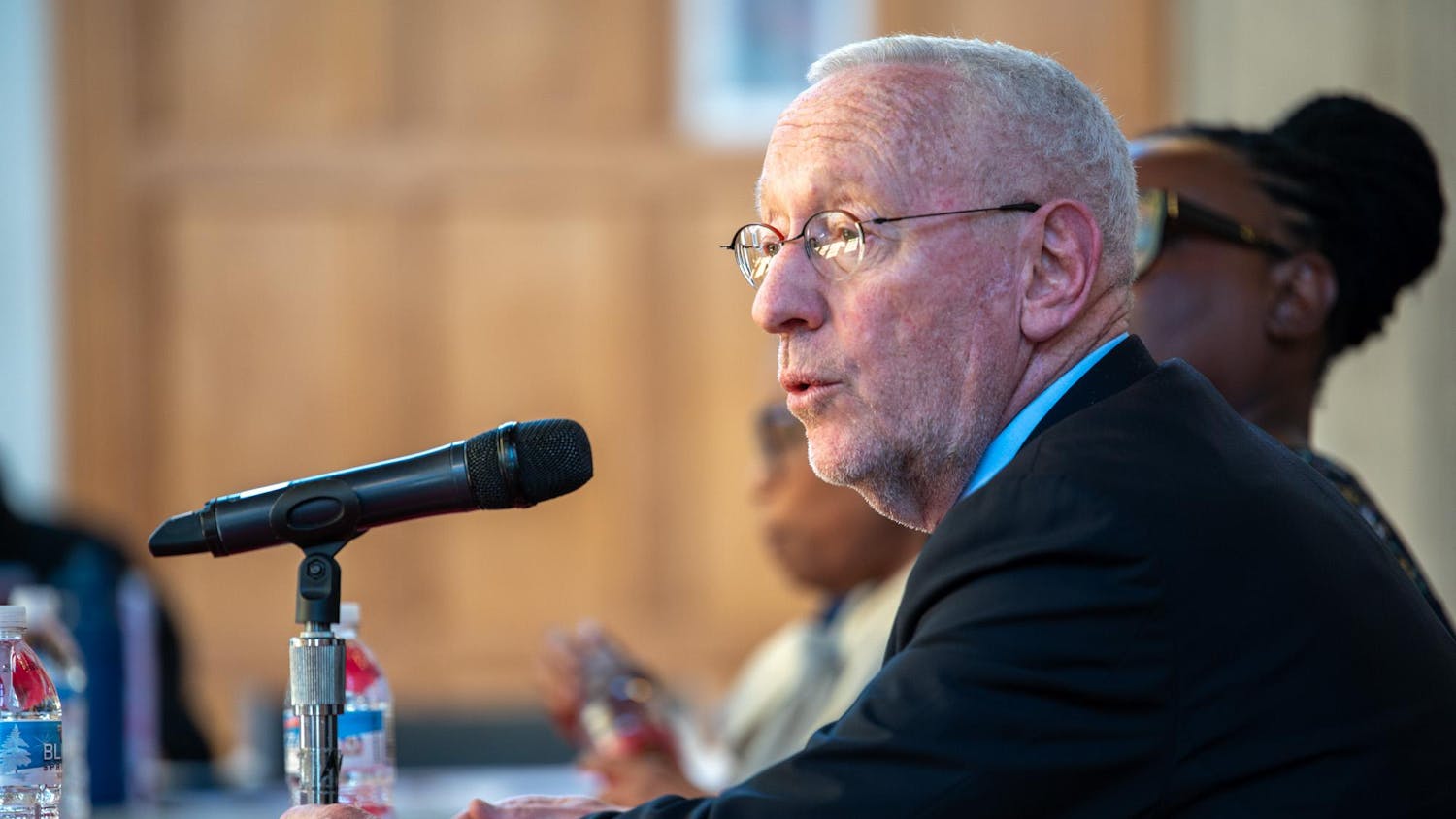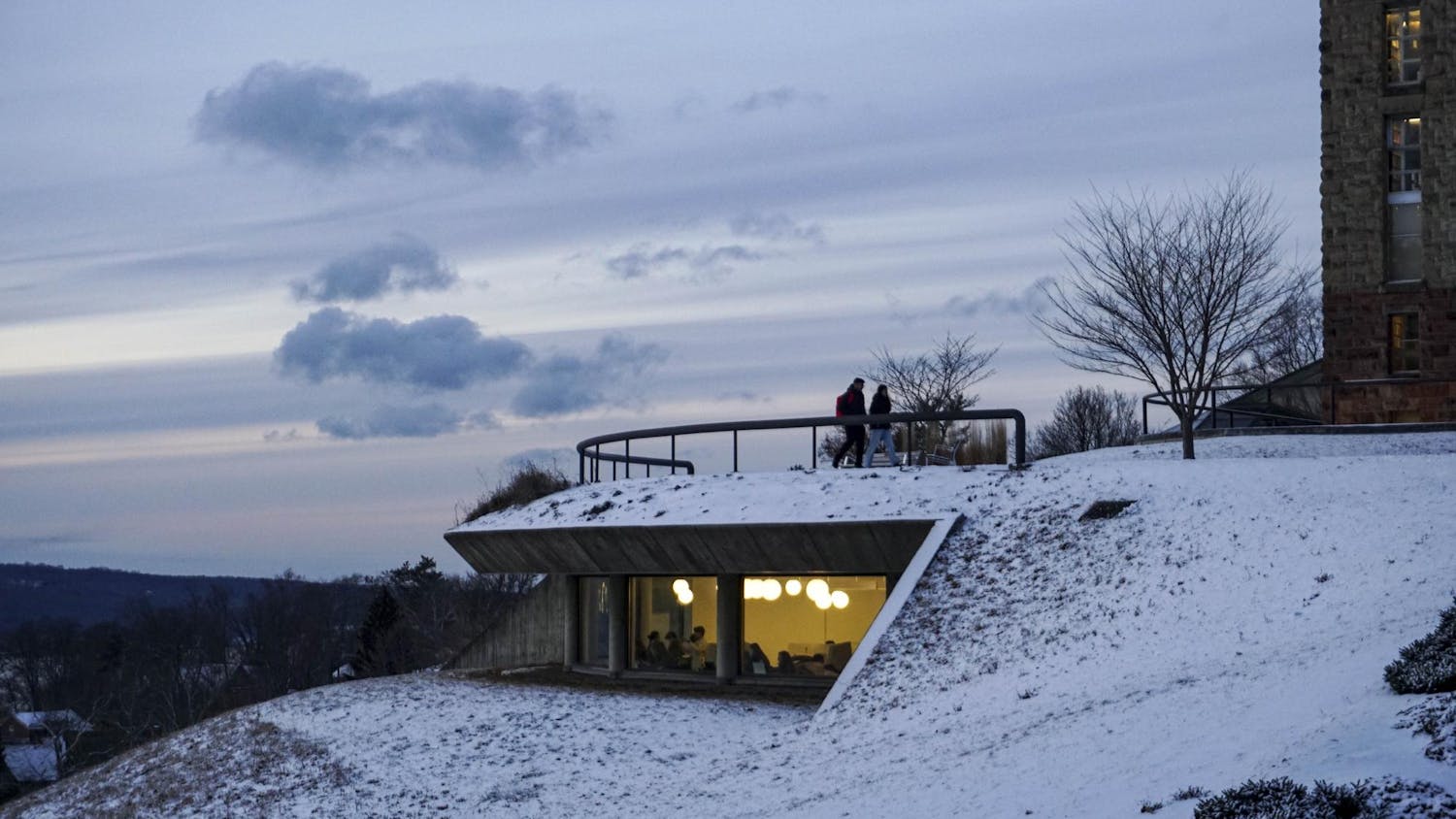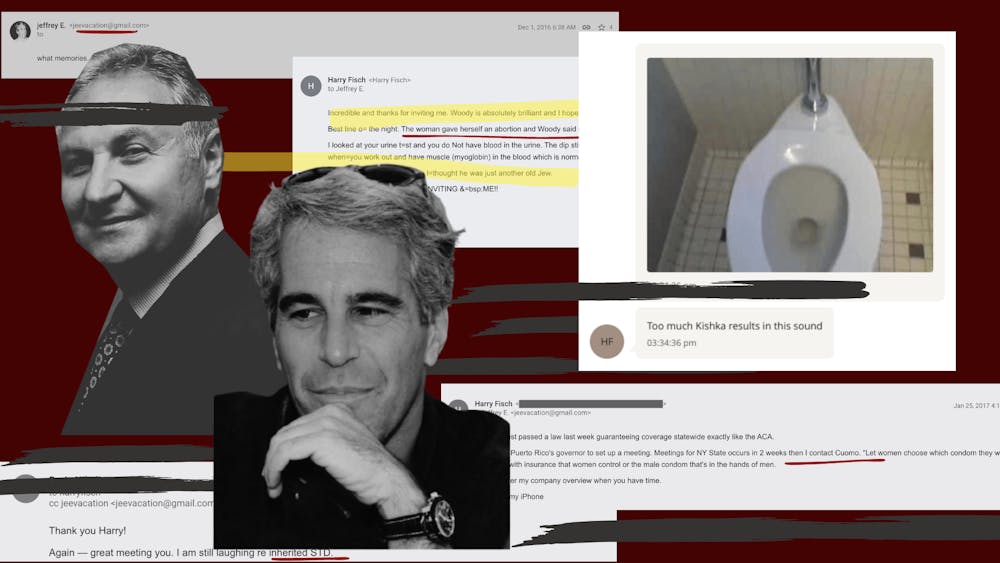Martha E. Pollack, nearing the six-month mark of her presidency, is facing her first major test at Cornell after hundreds of black students, responding to the arrest of a student who may be charged with a hate crime, marched into her office last week and hand-delivered a series of demands.
Pollack, who assumed the presidency in April, is now in charge of a campus so on-edge that a rope keeping electrical wires away from a construction site in Collegetown was mistaken for a noose on Sunday night by students who called police to report it.
In her less-tumultuous first few months at Cornell, Pollack made a series of moves that were widely lauded by students: She cut ties with Nike in July, citing labor standards; decried white supremacists after a protester was killed in Charlottesville; reinstated a work-study program for international students in August; and, this month, pledged to stand with students affected by President Donald Trump’s decision to end the Deferred Action for Childhood Arrivals program.
Now, following two separate incidents that have garnered national attention and may lead to hate crime charges against a Cornell sophomore, black students are urging Pollack to respond to their demands faster than the previous administration. A “nice email” from Pollack is not enough, one Black Students United co-chair said in the days following the assault of a black student.
Delmar Fears ’19, the co-chair, hand-delivered six, stapled pages with 12 demands to Pollack on the third floor of Day Hall last week with hundreds of students at her side. BSU provided a copy of those demands to The Sun, and they are being published here for the first time.
[scribd id=360033913 key=key-jA00AZd0A39t9xDhj73u mode=scroll]
Some of the demands — which include calls for mandatory coursework regarding systems of power, training for all employees and members of Greek life, a minority position on the University Assembly, an alternative dispute resolution process, the creation of an anti-racism institute, a permanent presidential task force, a plan to increase the presence of black Americans on campus and more — will be easier for Pollack to fulfill than others.
While Pollack has not led a university before, she served as the University of Michigan’s No. 2 official when, in 2016, students received threats, found racist posters and, in one case, discovered a swastika on the Ann Arbor campus. Pollack, while provost and executive vice president for academic affairs at Michigan, formed a diversity committee and hosted a rally in support of black students that drew hundreds of faculty members.
But the Collegetown assault, in which a black junior said he was punched in the face and called the N-word by a group of white men, has brought national media coverage in a way that the Michigan incidents never did. The student was also assaulted in the same month that a resident of the Latino Living Center reported hearing a nearby fraternity member talking about building a wall around the residential center and chanting “build a wall.”
Ithaca Police arrested John Greenwood ’20 and charged him with assault and aggravated harassment, both misdemeanors, in the Collegetown incident. A grand jury will decide in the next few weeks whether Greenwood, who is 19, will face hate crime charges. Greenwood has apologized for using “unacceptable” language, and his attorney, Ray Schlather J.D. ’76, said Greenwood did not engage in any physical altercation or commit any crime.
Pollack pledged to create a presidential task force to address persistent “bigotry and intolerance” at Cornell and charged the dean of students with creating an alternative dispute process. Officials, this week, also announced a host of diversity initiatives, including the hiring of four new clinical staff members in Counseling And Psychological Services, three of whom the officials said “will bring added diversity.”
Pollack also took decisive action regarding Psi Upsilon, a suspended fraternity of which the arrested student may have been an underground member, although officials have declined to release information regarding Greenwood’s status in the unaffiliated fraternity.
The president said that, “based on what we know, and pending final investigation, Cornell will not consider Psi Upsilon's reinstatement as an affiliated fraternity.” Officials have declined to elaborate on what it is Cornell knows. The executive director of the fraternity said the Cornell chapter, which had been suspended since the spring of 2016, was secretly recruiting new members.
Many Cornell students’ parents have kept close tabs on the news in recent weeks, some expressing frustrations in University officials’ inboxes and urging their children to be extra careful at night in Ithaca.
On Sunday evening, a student called police to report what he thought was a noose hanging from electrical wires on College Avenue. The rope was actually being used to keep the wires together during construction on a nearby corner, Officer Jamie Williamson of IPD told The Sun. Authorities cut the rope down later that night.
Safety concerns have spurred calls from some students for a ban, or restriction, on “hate speech.”
About 250 students, led by Fears and Traciann Celestin '19, the BSU co-chairs, packed a University Assembly meeting last week and persuaded the U.A. to task its Codes and Judicial Committee with considering a “hate speech” clause to the Campus Code of Conduct. If any clause restricting “hate speech,” however it is defined, is passed by the U.A., it would need the approval of President Pollack to go into effect, which seems unlikely.
When white supremacist fliers were posted around the Michigan campus about a year ago, Pollack was adamant that the posters were protected by the First Amendment.
“They are protected by free speech, as they should be,” The Michigan Daily quoted her as saying in September of 2016.
"Not only do we have a constitutional obligation to allow all speech, no matter how heinous, but if you're going to stand by the First Amendment, you're going to stand by the First Amendment,” she said. “But what you have to do then is loudly make known your abhorrence of this."
Michigan is a public university and therefore legally bound to protect students’ freedom of expression on campus, but in May, just two weeks into her presidency at Cornell, which largely functions as a private university, Pollack made it clear that she planned to bring the same reverence for the First Amendment to Ithaca’s East Hill.
“As soon as you start suppressing speech, you open the question of who gets to decide,” she said in May, adding that, “historically, that never goes well.”
In her inaugural address on Aug. 25, Pollack said there are some limits to freedom of expression, such as words that incite imminent violence, persistent harassment or actions that disrupt University activities.
“The lines are messy, and debate about them is an appropriate and healthy activity for our universities,” she said.
While some BSU members were initially frustrated that they were only able to meet, in the 48 hours following the Collegetown assault, with the dean of students, Fears later said that Pollack appears to be genuinely receptive to the group’s demands.
Among the demands that would likely take years of sustained efforts to meet are increasing the number of “underrepresented Black students” at Cornell — defined by BSU as black Americans whose great-grandparents live or lived in the U.S. — and creating an anti-racism institute to centralize Cornell’s efforts to educate students “about the horrors of white supremacy.”
Joel Malina, vice president for university relations, declined last week to make Pollack available for comment for this article.
Black Students United also demanded that the Psi Upsilon fraternity be permanently banned from campus, that all students found to be involved in the crime be expelled and that the Psi Upsilon fraternity house be converted into a cultural center for people of the African diaspora.
Drew Musto '19 contributed to this report.
Read Black Students United’s full demands to Cornell here.

Black Students United’s Demands in Hand, Cornell President Faces First Big Test
Reading time: about 8 minutes
Traciann Celestin '19 and Delmar Fears '19, co-chairs of Black Students United, sit in silence and hold up their fists at a University Assembly meeting in Clark Hall, Sept. 19th, 2017.
Read More










